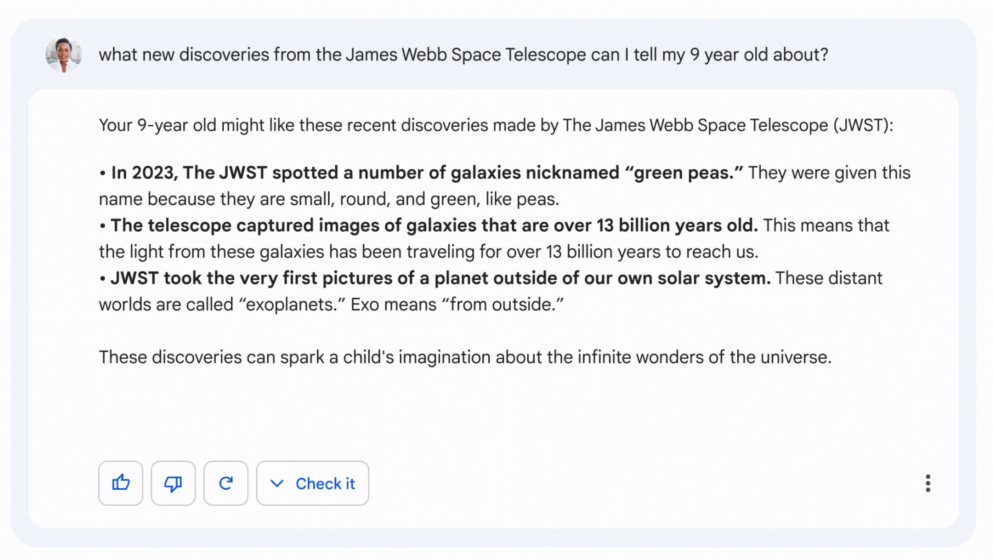Google’s new AI-driven update to its search engine, Google Bard, will revolutionize the way we search the internet. With its pre-training of 1.56 trillion words, this new tech promises to open up some exciting possibilities. We’ll discuss what we know about Google Bard so far and explore the potential impact it could have on SEO, search advertising, marketing and website page views.
What did Google train Bard AI on?
According to Sundar Pichai’s blog post announcing Google Bard, the generative AI application is based on a scaled-down version of the Language Model for Dialogue Applications (LaMDA). The research paper published in 2022 outlines the percentages of different types of data used to train LaMDA. LaMDA was trained on a dataset called Infiniset. This dataset is a blend of content specifically chosen to sharpen the model’s capacity to participate in dialogues. It comprises of the following:
- 12.5% C4-based (Colossal Clean Crawled Corpus) data
- 12.5% English language Wikipedia
- 12.5% code documents from programming Q&A websites, tutorials and others
- 6.25% English web documents
- 6.25% Non-English web documents
- 50% dialogs data from public forums
Approximately 50% of the data used to train LaMDA was derived from dialogs sourced from public forums. Although the exact sites are not specified in the paper, these are likely to include well-known community discussion sites such as Reddit, Quora, and others.
How will Bard AI display Search Results?
Bard will revolutionize the way in which people search the internet. Bard promises to provide more precise and accurate results with its ability to access current information from the internet and the use of a special dataset it was trained on. This is demonstrated in the following example featured in the Google Blog:

How will it impact Website Traffic?
Not much is known about how Bard will affect Google search results, so it’s hard to tell what the implications for website traffic might be. However, Google CEO Sundar Pichai’s blog example didn’t link to the original sources, and Microsoft has said they’ll include citations in the AI-generated summaries. So it’s probably safe to assume Google will do the same.
A bigger question is whether this AI-generated content will replace the need for users to visit other websites. This isn’t completely new for Google, as they’ve been displaying answers to specific questions in Featured Snippets for some time now. It will be interesting to see where this new search paradigm takes us!

Who knows if Google will jump on the AI bandwagon like Microsoft’s Bing and put a chat window to the right of search results? If they do, it could have a big impact on website traffic. That is, if they link to the original sources of summarized material, that is. If users can get the complete answer to their query right away, they won’t have to look anywhere else. This is when the traffic to original source websites takes a hit.
Check out more AI tools.
Sign up for Textify AI membership.
Related:
The Power of Automation in Debt Collection Software
Direct-to-Mobile (D2M) Technology: The 2026 Guide to Internet-Free Streaming
What Is GaN Chip Technology? The 2026 Beginner-to-Expert Guide
How to Invest in the Crypto Market: A 2026 Strategic Guide
What is EDA in Machine Learning? A Simple Beginner’s Guide
Optimizing the AI Lifecycle: A Practical Guide to Deepen AI’s Internal Tools
DEXTools Crypto Guide 2026: Charts, DEXT Score & Trading Strategy
Want a Recognized Qualification? Top 7 Online Teacher Training Courses With Certificates


